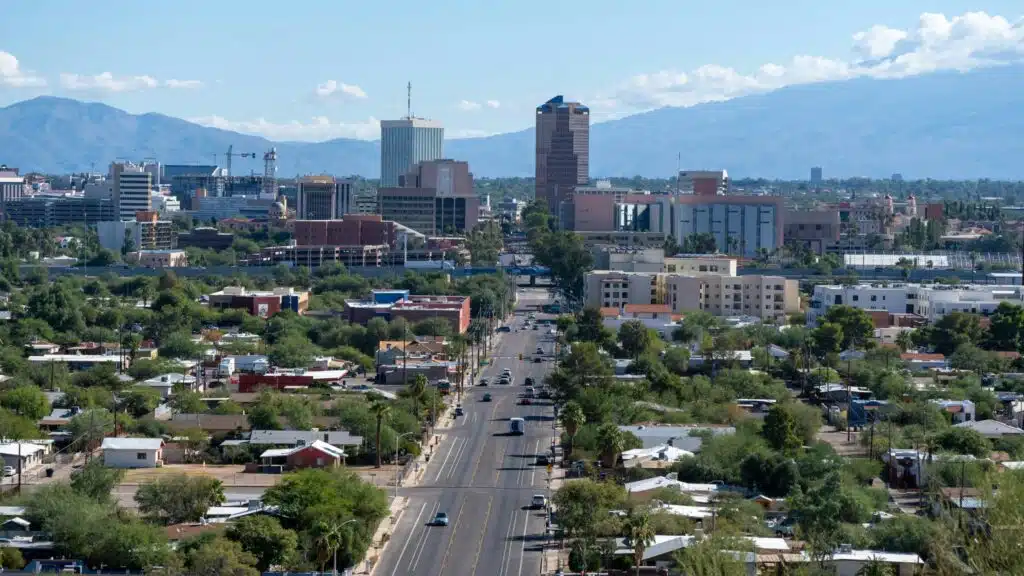Age and gender play crucial roles in shaping Medicare plan options and coverage in Arizona. These factors influence the types of services covered, including home care and disease management, as well as the availability of managed care plans. Additionally, age and gender can impact plan ownership and equity considerations for beneficiaries. In this article, we’ll explore how these demographic factors affect Medicare choices and coverage in Arizona, providing valuable insights for both current and future beneficiaries.
Key Takeaways
- Age and gender significantly influence Medicare plan options and costs in Arizona
- Medicare premiums and out-of-pocket expenses typically increase as enrollees age
- Women generally use preventive care more frequently, while men often delay seeking medical attention
- Arizona’s Medicare landscape considers diverse demographics to ensure equitable access to care
How Age Influences Medicare Plan Options in Arizona

Age plays a crucial role in Medicare plan options available to Arizona residents. Older adults often require different coverage than younger enrollees, influencing their choices among Medicare Advantage plans and health maintenance organizations. The formulary, mental health services, and payment structures vary based on age-related health needs. Understanding eligibility criteria for different age groups helps seniors and younger Medicare-eligible individuals compare plan choices effectively, ensuring they select coverage that best suits their unique health and financial requirements.
Understanding Eligibility Criteria for Different Age Groups
The Medicare eligibility criteria in Arizona vary based on age groups, reflecting the diverse health needs of the population. Individuals aged 65 and older qualify for Original Medicare, while those under 65 with certain disabilities or specific conditions, such as End-Stage Renal Disease, may also be eligible. The cost of Medicare plans often correlates with age, as older individuals typically require more medical services and face a higher risk of infection. Medicare Advantage plans offer additional options for different age groups, tailoring coverage to address age-specific health concerns and economic factors.
Comparing Plan Choices for Seniors Versus Younger Enrollees
Seniors in Arizona often prioritize comprehensive coverage for chronic conditions and preventive care, while younger enrollees may focus on lower premiums and emergency department access. Plan choices for older adults typically include more robust prescription drug coverage and in-home care options, whereas younger individuals might opt for plans with lower out-of-pocket costs for unexpected health issues. While Arizona’s Medicare plans differ from those in Alaska or Maryland, they all aim to provide adequate reimbursement for medical services, including transport to healthcare facilities when needed.
Gender-Specific Health Coverage Options in Medicare Plans

Gender plays a significant role in shaping Medicare plan options in Arizona, reflecting unique health care needs across the spectrum. Unlike states such as California or Connecticut, Arizona’s gender-specific coverage addresses distinct concerns for both men and women, including acute care requirements and prescription drug preferences. These plans consider the diverse health profiles of various demographic groups, including Asian Americans, to ensure comprehensive coverage. Gender-based variations in premiums, benefits, and prescription drug coverage choices highlight the nuanced approach to Medicare planning in Arizona, aiming to provide tailored health solutions for all beneficiaries.
Analyzing Gender-Based Premiums and Benefits Variations
Gender-based variations in Medicare premiums and benefits in Arizona reflect differing health needs and utilization patterns. Women typically face higher premiums due to longer life expectancies and higher rates of chronic conditions, while men often have lower adherence to preventive care recommendations. Unlike Illinois, Arizona’s Medicare plans provide gender-specific information to help beneficiaries make informed choices about their coverage options.
The Impact of Gender on Prescription Drug Coverage Choices
Gender impacts prescription drug coverage choices in Arizona’s Medicare plans, reflecting different health needs and financial considerations during retirement. Women often select plans with broader coverage for hormonal therapies and preventive medications, while men may prioritize coverage for cardiovascular and prostate-related drugs. Income and education levels also influence these choices, with higher-income individuals often opting for more comprehensive drug plans. Unlike New Hampshire, Arizona’s Medicare plans offer gender-specific drug coverage options to address unique health concerns and treatment preferences.
Age-Related Changes in Medicare Plan Costs Over Time

Age significantly influences Medicare plan costs in Arizona, with expenses typically rising as enrollees grow older. This trend reflects the increasing healthcare needs of aging populations across different zip codes. The state’s approach to population health and health equity considers factors like Spanish language accessibility, which can impact plan choices and costs. Unlike Michigan, Arizona’s Medicare landscape adapts to its unique demographic makeup, affecting both premium adjustments and out-of-pocket expenses over time. Understanding these age-related changes helps beneficiaries prepare for future healthcare costs and make informed decisions about their coverage options.
Tracking Premium Adjustments as Enrollees Get Older
Medicare Advantage plans in Arizona adjust premiums as enrollees age, reflecting increased health risks and service utilization. The average premium increase varies based on factors such as location, plan type, and individual health status. Insurers use sampling and census data to calculate these adjustments, considering demographics and language preferences to ensure fair pricing across diverse populations.
The Shift in Out-of-Pocket Expenses With Advancing Age
Medicare beneficiaries in Arizona experience a shift in out-of-pocket expenses as they age. Older patients typically face higher costs due to increased healthcare needs and more frequent medical visits. This trend affects individuals across various wage levels, with those relying on fixed incomes often struggling to manage rising expenses. The internet has become a valuable tool for seniors to compare plans and find cost-effective options, but many still face challenges in navigating the complex Medicare system as they age.
How Gender Affects the Likelihood of Needing Specialty Care

Gender plays a significant role in determining the likelihood of needing specialty care within Arizona’s Medicare system. Research shows distinct patterns in health services usage between men and women, influencing insurance coverage needs and Medicare Part D options. Unlike Vermont, Arizona’s demographic makeup results in unique healthcare demands across genders. The median age of beneficiaries affects these patterns, with older adults often requiring more specialized care. Case studies on men’s and women’s health programs availability in Arizona reveal disparities in access and coverage, highlighting the need for gender-specific approaches in Medicare planning.
Statistical Differences in Health Services Usage by Gender
Gender disparities in health services usage among Arizona Medicare beneficiaries reflect distinct patterns. Women generally utilize preventive care and specialty services more frequently than men, leading to higher copayments and potential nursing home stays. Men, on the other hand, tend to seek medical attention later in disease progression, often resulting in more intensive treatments. These differences impact Medicare contract negotiations and plan designs, with insurers adapting coverage options to address gender-specific needs. Unlike New Jersey, Arizona’s Medicare landscape considers these usage patterns to ensure equitable access to care across genders:
- Women: Higher utilization of preventive services and specialty care
- Men: Delayed care-seeking behavior, often leading to more intensive treatments
- Insurers: Adapting coverage options to address gender-specific health needs
- Arizona Medicare: Considering usage patterns to ensure equitable access to care
Navigating the Enrollment Process for Different Ages and Genders

Navigating the enrollment process for Medicare in Arizona requires careful consideration of age and gender-specific needs. Unlike Virginia, Arizona’s demographic landscape shapes unique enrollment patterns. The Medicare Payment Advisory Commission’s data reveals how employment and workforce trends influence plan selections across different age groups and genders. Understanding these factors is crucial for choosing appropriate coverage. Arizona’s diverse population necessitates a tailored approach to enrollment, with resources available in various formats, including PDF guides, to assist beneficiaries in making informed decisions based on their demographics.
Step-by-Step Guide to Selecting a Plan Suited to Your Demographics
Selecting a Medicare plan in Arizona tailored to one’s demographics involves several key steps. First, individuals should assess their health needs, considering factors such as ethnicity, primary care requirements, and chronic conditions like diabetes. Next, they should review available plans, comparing coverage for nursing care and evaluating how each aligns with current health policy trends. Finally, beneficiaries should consider their budget and choose a plan that offers the best balance of coverage and affordability for their specific age and gender group:
- Assess personal health needs and demographics
- Review available Medicare plans
- Compare coverage for specific services
- Consider budget constraints
- Choose the most suitable plan
Conclusion
Age and gender significantly influence Medicare plan options, costs, and coverage in Arizona. These demographic factors shape eligibility criteria, premium adjustments, and the likelihood of needing specialty care. Arizona’s Medicare landscape adapts to its diverse population by offering gender-specific health programs and tailoring coverage to address age-related health concerns. Understanding the role of age and gender in Medicare plans empowers beneficiaries to make informed decisions, ensuring they select coverage that best suits their unique health and financial requirements.




